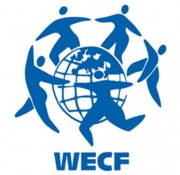Ecological Sanitation for Rural Areas - School sanitation story from Tajikistan
Country: Tajikistan
Contents
[hide]Tajikistan: Ecological Sanitation for Rural Areas
Basic data:
New UDDT were realised and equipped with handwashing facilities. NGO ASDP Nau involved the community and the children in all steps of the project. Thanks to the education measures and active students, the acceptance was raised.
The project and the experiences:
A student in rural Tajikistan reported about the typical situation in his school: “Our toilet, a pit latrine, is more than 30 years old and, as a result, half of the roof is missing, some parts of the wall are broken. When it rains it is not possible to use the toilet, because rain enters into the inside of the toilet and wooden floor, which was already old and rotten, became slippery. My classmate during her visit to the school toilet fell down to the toilet. Fortunately she wasn’t alone and her classmate helped her to get out.”
Due to the lack of toilet paper, students sometimes used stones or dried cow dung lying around the school building for anal cleansing which creates high risk for WASH related diseases such as helminth infections. During menstruation, the girls are especially in trouble as they do not have any privacy in these latrines.
The teachers reported that they did not drink in the morning to avoid going to the pit latrine during classes.
The school director asked the local NGO Agency for Support Development Process Nau (ASDP Nau) to renovate the toilet. The installation of urine-diverting dry toilets (UDDT) in separated blocks for boys and girls were suggested by ASDP Nau as this technology has been proven to be suitable and sustainable.
The new UDDT were realised and equipped with handwashing facilities which led to a high satisfaction among both boys and girls. However, the improvements and privacy provided is more important to the girls of the school. Guzal, a female student, says: “Now we are happy that we have a good toilet. It is equipped with all the necessary items. There is water for washing hands and a hygienic space, which is very necessary for us, girls. The girls of our school didn’t come to school during the menstruation period, because they did not have a safe place to go, but now our new toilet has a door, a roof and girls are not afraid anymore to attend the school during the menstruation.”
The school was able to find a local farmer willing to purchase the urine collected at the school. The income generated helps the school cover part of the cost of supplies including toilet paper and soap.
ASDP Nau involved the community and the children in all steps of the project: informing, consulting, planning, implementation, monitoring, decision making process, management, etc. The design of the facility was developed in cooperation with an architect of the region, and the plan was approved by the relevant institutions. It is important to agree on responsibilities and duties of the school and a Memorandum of Understanding clarifying these issues is usually signed by the head of the local Jamoat (municipality), ASDP Nau, and representatives from the school, and the school receives the grant and is responsible for construction and maintenance of the sanitation facility.
Still, it took time for students to get used to the new toilet because the use of a new type of toilet needs some time for acceptance, and education was an important part of that process. “It is a very sensitive issue. In one case we experienced that the students were too shy to go to the new school toilet as they were afraid to make it dirty so that they were still using the old pit latrine. Thanks to the education measures and active students, we could raise the acceptance,” says Surayo from ASDP Nau. Therefore she recommends the removal of former pit latrines in addition to awareness raising activities.
The key lessons of the story:
Especially school girls benefit from ecosan toilets and washing facilities in rural Tajikistan.
Sustainability Criteria
Health and Hygiene: Especially the school girls benefit from the new toilet and the wash facilities and their hygienic conditions and privacy.
Environment and natural resources: toilet products of the UDDT are being safely re-used and do not pollute the environment.
Technology and operation: Stakeholder involvement helps gain commitment to the new sanitation system.
Financial and economic issues: in one school the urine can be sold to a farmer.
Socio-cultural and institutional aspects: it is important to involve all stakeholders. The new toilets are of special benefit for the school girls.
Project details
Type of project: Eco Toilet with wash facilities for the school in Gafurov
Project period: October 01, 2012 until March 31, 2013
Start of operation: 2012
Project scale: 55 schools, 776 school children and teachers, conducting 4 trainings for 133 participants
Address of project location: Tajikistan, Sughd district
Implementing institution: ASDP Nau, supported by WECF
Supporting agency: Dutch ministry of Foreign Affairs, NatraCare
ASDP Nau is a local NGO working on sustainable development and increase of socio – economic status in communities of Tajikistan. UDDTs were installed at seven schools in the Sughd region of Tajikistan by ASDP Nau with support of WECF. Funding came from the Dutch ministry of Foreign Affairs and the company NatraCare.
WECF (Women in Europe for a Common Future) is a non-governmental organization established in 1994 following the 1992 Earth Summit in Rio de Janeiro, to give women a stronger voice in the field of sustainable development and environment.
Contact
Claudia Wendland
WECF
Claudia.Wendland![]() wecf.eu
wecf.eu
Surayo Saidova
Agency for Support Development Process Nau (ASDP Nau)
surayosaidova![]() agencynau.tj
agencynau.tj


